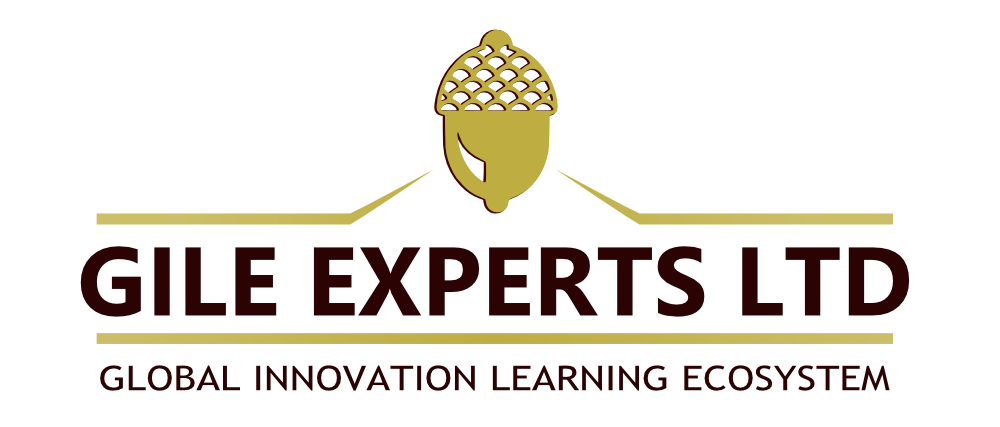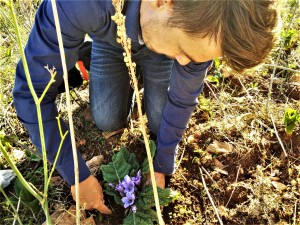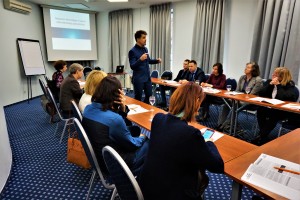The Smaug of hobbies, leisure and creativity is resurrected – exciting times for multi-talented people begin…
The interpretation of the notion ‘Hobbies’ is tightly related to efforts an individual can dedicate to the diverse leisure activities or his/her natural talent areas outside of his/her workplace. Taking into account that hobbies (a form of entertainment or leisure outside of the workplace) are also related to the equilibrium between inputs an individual can allocate versus potential outputs/ value hobbies can help generate, the liaison of work-leisure is more complex than we could imagine. Daily (2018) emphasizes that a hobby is an individual voluntary activity outside work, which might require tools and would be related to the creative process and production of certain objects. Although, the author’s presented literature review covers a vast diversity of impacts of hobbies (both beneficial and detrimental; leading to well-being, quality of life or identity), it is clear that this activity is separated from work activities, and plays a critical role for the quality of life. To continue, Mark Twain’s quote (‘Find a job you enjoy doing, and you will never have to work a day in your life’) could be interpreted from the perspective of hobbies: pursuing hobbies is of significant value for both individual and organizational (or team) creativity and efficiency. If we strive to find a job, based on our natural talent areas and hobbies, we might never feel stress at work and will not diminish the quality of our life.
For example, Paggi et al. (2016) tackled the relationship between the intensity/ scope of leisure activities and physical health limitations; however, notwithstanding age, the value-added of physical health for well-being is partly dependent on the individual involvement in leisure activities. Thus, leisure activities are critical for ageing gracefully throughout the life span. Having the amateur astronomers investigated, Azevedo (2013) points out that hobbies are interest-driven practices, that should be supported by the material infrastructure, extensively large networks, adequate resources, and knowledge/ information sharing mechanisms. First of all, a necessary chunk of annual income should be dedicated to hobbies, while leisure activities should be planned, drawing attention to the potential value a hobby could create in the short and long run. For instance, the report ‘Saving Fitness – A Guide to Your Money and Your Financial Future’ (the U.S. Department of Labour, Employee Benefits Security Administration, 2019) shows how to plan a hobby financially while indicating the monthly and annual expenditures/ the inputs allocated for hobbies among other leisure activities, such as travelling, theater, cinema, entertainment, gardening or eating out.
Based on the EHC guideline (2020) on the key effects of hobbies or how to unleash the potential of hobbies, the study authors emphasize the role hobbies could play while building your brand and image, relieving stress, improving your psychological health; also via enhancing skills and knowledge improving stamina, intensifying our social life, and diminishing social exclusion. GILE experts (2021) underline two key impacts of hobbies – the alternative income source and fun. Moreover, in order to find a hobby which is suitable for our personality, it would be useful to remember various creativity enhancement practices and/or ‘go back to our childhood’, taboo topics or the abandoned areas of our life.
According to Snir and Harpaz (2002), who addressed the specificity of Israeli labour force, the leisure oriented people are driven by less conformist and time-non limited activities, while being less disciplined and using more transactional communication approaches; they might be more oriented to new opportunities, creativity-based open innovation environment systems, and well-established human relations. In parallel with the key drivers, leisure activities along with diverse hobbies away from their work are of significant importance to their quality of life. According to 2021 Deloitte Global Human Capital Trends, employees’ well-being is underlined among the key organizational success factors by 80% of respondents (the sample – 9000); thus, introducing new capabilities and opportunities of pursuing hobbies and leisure activities away from work might be a great tactic to enhance physical and psychological health at the organizational or team level.
The recent circumstances of COVID-19 triggered important transformation in terms of application of modern technology in business, while providing more opportunities for employees to work remotely as well as dedicating more attention to hobbies and leisure areas. This is in line with Deloitte Insights (2020) report ‘Tech Trends 2021’, where the safety and well-being of the society are fundamental pillars for growth, while technological and big data management skills, along with corresponding modern applications and infrastructure, should help develop and maintain technological platforms/ hubs and services. Therefore, the talents and hobbies, related to these technological areas, are critical for individuals from both perspectives, employees and pursuers of creative activities away from work.
Given the increasing importance of HR strategies, the work–life balance is oriented towards attracting and retaining the talented workers, while business intelligence (including data management), planning and flexibility are the necessary preconditions to guarantee a sufficient supply of talents for a company. In parallel with diverse HR strategies (Rodríguez-Sánchez et al. 2020), the technology helps reshape work-life or work-leisure balance; however, a set of specific competences, knowledge and skills is necessary to unleash the potential of hobbies.
As it was stated by Deloitte experts (2014), the help of advisors with specific skills, personalities and pricing strategies can largely contribute to both financial wealth and pursuing hobbies or leisure activities. PWC experts (2017) went one step further while conducting the survey of over 200 HR experts while explaining how flexible and diverse career choices (being self-employed or working for multiple employers) depend on the ownership of a talent. Notwithstanding the ownership rights, an individual has more flexibility and motivation to choose what leisure activity or hobby he/she wants to pursue and which of these activities an individual tends to commercialize. Commercialization becomes more likely because, according to Deloitte (2017), the investors are more driven by holistic wealth management: they incorporate arts and collectibles to their portfolio, because of their passion and hobbies (cars, wine, race horses, antiquity, and etc.). Thus, it is more probable for an individual hobby pursuer to get a necessary investment for turning a hobby into a commercial project or startup.
The liaison between work and leisure activities is related to work-life balance and is in line with work spillover into leisure (Haywood et al., 1989) or leisure effects on work activities. Both aspects of leisure-work liaison are related to the educational backgrounds. For instance, the specializations related to job positions of higher technological intensity are responsible for higher value-added to both economy, business, individual wealth and happiness. GILE experts (2021) agree that some of this leisure spillover effects (in terms of opportunity identification and innovation pursuing) could be actualised inside various organizations, for instance through succession planning in the United Nations System Organizations (Sukayri , R. M., 2016) or creative ideas enhancement via leadership in the Bahrain Post (AlMannai et al. 2017) or the quality of service in Commercial Banks in Egypt via talent management, according to Nafei (2015). However, realization of talents inside a firm is not sufficient – leisure activities, hobbies, and the use of diverse talents outside of workplace is critical to feel satisfaction of life and well-being.
According to PwC’s 22nd Annual Global CEO Survey trends series (2019), 76% of CEOs of finance services companies face the shortage of skills, which is a pressure for HR strategies (including staffing), innovation and customer experience. Based on the Secretary of State for Education and Minister for Women and Equalities by Command of Her Majesty (the UK, 2017), the education could boost social mobility and help pursue talents both away from work and at work. As it is revealed in Ireland’s National Skills Strategy 2025, education should contribute to better social inclusion, healthier relations among citizens and diverse opportunities of talent development (which could help create value in the future). Therefore, hobbies and talents should be tackled from both employees’ and citizens’ perspectives. The focus of early stage education on creative thinking, according to OECD (2019) working paper ‘Pisa Creative Thinking 2021’ could help adapt to modern technology-based challenges, gather the social community via innovative solutions in order to solve corporate challenges, to fill new job positions (being a critical intermediary between technology and human capital) as well as discover and continuously develop talents away from work – through leisure activities, hobbies and entertainment. In line with Garcia’s et al. in depth semi-structured interviews results (2019), multi-talented students tend to reach higher material, psychological and spiritual statuses, which are called 3G (Greater Self, Good and Divine), along with bigger social value-added and higher satisfaction of life.
The GILE Experts’ (2021) position is in line with Lucas’ and Spencer’s (2017) insights on the role of creative thinking; however, Miliute and Lauzikas (2021) add another important aspect – the rapidly transforming diversity of career choices and statuses, when many individuals are unbanked, self-employed, working as referring parties or free-lancers. Thus, the separation between the work and leisure activities becomes artificial, while in order to generate a bigger value-added from this equilibrium, an individual should be more involved in his/her hobbies and bit by bit start commercializing some parts of this equilibrium in order to create a unique healthy individual balance of work and leisure. Such trends are even more emphasized during the period of the pandemic. For example, among 19 Hobbies, identified by Sharma (2021), many of them (such as blogging, writing, proofreading, graphic design, Web, video and App development or even photography and illustration, gaming, baking, working out or shopping) can be easily turned into commercial value generating projects.
Thus, in addition to the inclusive organisational culture, creative diversity (in terms of ideas, skills, knowledge and behaviours), emphasised within the United Nations Development Programme ‘People for 2030’ or by the European Commission (in terms of access to affordable after-school leisure activities and sports, 2020), GILE Experts encourage early stage education organizations introduce programs oriented to the development of talents, the encouragement of hobbies, which might be turned into commercial value through different career forms. Young talented people need to be ready to plan their hobbies and contribute with a significant percentage of commercialized leisure-related hobbies. Online learning programs are a great alternative to unleash the potential of hobbies; for example, according to the KPMG study ‘Online Education in India 2021’ hobbies and language enhancement programs (with practical components) might be an attractive alternative in India.
Apart from new forms of business models, driven by social integrity, information security, flexibility, data management and fast reaction, culture will be a key linking factor between work and leisure, which calls for new management and leadership positions related to culture, philosophy and community gathering. It is time for all of us to unlock the creative and commercial potential of our talents and hobbies.
Bibliography
-
AlMannai, A. W.; Arbab, A. M.; Darwish, S. Z. (2017). The impact of talent management strategies on enhancement of competitive advantage in Bahrain Post. International Journal Of Core Engineering & Management. Vol. 4, No. 6, p. 17, Available online: ttps://www.researchgate.net/publication/320676770
-
Azevedo, F. S. (2013). The Tailored Practice of Hobbies and Its Implication for the Design of Interest-Driven Learning Environments. Journal of the Learning Sciences. Vol. 22, No. 3, pp. 462-510, DOI: 10.1080/10508406.2012.730082
-
Daily, L. Z. (2018). Towards a definition of “hobby”: An empirical test of a proposed operational definition of the word hobby. Journal of Occupational Science, volume 25, No. 3, p. 28 DOI:10.1080/14427591.2018.1463286
-
Deloitte (2017). Art and Finance Report 2017. p. 272, Available Online: https://www2.deloitte.com/content/dam/Deloitte/at/Documents/finance/art-and-finance-report-2017.pdf
-
Deloitte (2020). 2021 Deloitte Global Human Capital Trends, Social Enterprise in a World Disrupted, p. 64, Available online: https://www2.deloitte.com/us/en/insights/focus/human-capital-trends/2021/social-enterprise-survive-to-thrive.html
-
Deloitte Insights (2020) ‘Tech Trends 2021 by Budman, M.; Hurley, B.; Khan, A.; Bhat, R.; Gangopadhyayp, N.; p.166 Available Online: www.deloitte.com/us/TechTrends
-
Deloitte, prepared by Gauthier, V.; Gera, R.; Berini, R. (2014). Digital disruption in Wealth Management; Why established firms should pay attention to emerging digital business models for retail investors, p. 15. Available online: https://www2.deloitte.com/mt/en/pages/financial-services/articles/digital-disruption-in-wealth-management.html
-
The Department of Education and Skills of Ireland (2016). Ireland’s National Skills Strategy 2025. As part of the Action Plan for Jobs 2015. p. 63, Available online: https://www.education.ie/en/publications/policy-reports/pub_national_skills_strategy_2025.pdf
-
EYQ (2020). How will COVID-19 affect individual behavior? Available online: https://www.ey.com/en_gl/covid-19/will-you-define-the-new-normal-or-watch-it-unfold
-
EHC (2020). EHC Lesson Guides: Importance of Hobbies, University of Arkansas System, p. 6. Available Online: https://www.uaex.edu/life-skills-wellness/extension-homemakers/lesson-guides.aspx
-
European Commission (2020). Action plan on Integration and Inclusion 2021-2027, p. 26. https://ec.europa.eu/home-affairs/sites/homeaffairs/files/pdf/action_plan_on_integration_and_inclusion_2021-2027.pdf
-
Garcia, Ed. D. N. H.; Cortez, L.C.; Garcia, R.E.H.; Magdael, E.P.G.; Manongsong, L.J.H.; Carrios, T. N. A.; Talamante, A.M.M. (2019). Beyond Talent: The Powerful G’s in the Life of Multitalented High School Students, A Phenomenology, p. 26, DOI: 10.30845/ijhss.v9n12a3
-
Haywood, L.; Kew, F.; Bramham, P.; Spink, J.; Capenerhurst, J.; Henry, I. (1989). Understanding leisure. London: Hutchinson.
-
KPMG in India (2017). Online Education in India 2021. p. 56, Available Online: https://assets.kpmg/content/dam/kpmg/in/pdf/2017/05/Online-Education-in-India-2021.pdf
-
Lucas, B.; Spencer, E. (2017). Teaching Creative Thinking: Developing Learners Who Generate Ideas and Can Think Critically. Crown House Publishing, https://bookshop.canterbury.ac.uk/Teaching-Creative-Thinking-Developing-learners-who-generate-ideas-and-can-think-critically_9781785832369 (accessed on 26 March 2018).
-
Murphy, K. M.; Shleifer, A.; Vishny, R. W. (1991). The Allocation of Talent: Implications for Growth. The Quarterly Journal of Economics. Vol. 106, No. 2, pp. 503-530 doi:10.2307/2937945
-
Nafei, W. (2015). The Effects of Talent Management on Service Quality: A Study on Commercial Banks in Egypt. International Business Research. Vol. 8, No. 4, p. 19. DOI: 10.5539/ibr.v8n4p41
-
OECD (2019). Pisa Creative Thinking 2021, Third Draft, p.56, Available online: https://www.oecd.org/pisa/publications/PISA-2021-creative-thinking-framework.pdf
-
Paggi, M. E.; Jopp , D.; Hertzog, C. (2016). The Importance of Leisure Activities in the Relationship between Physical Health and Well-Being in a Life Span Sample. Gerontology, Vol. 62, pp. 450–458, DOI: 10.1159/000444415
-
PWC (2019). Financial services talent trends 2019. Part of PwC’s 22nd Annual Global CEO Survey trends series. p.12, https://www.pwc.com/gx/en/ceo-survey/2019/Theme-assets/reports/financial-services-talent-ceo-survey-trends-report-2019.pdf
-
PWC (2017). The way we work – in 2025 and beyond. Survey, p. 33, Available online: www.pwc.ch/futureofwork-survey
-
Rodríguez-Sánchez, J. L.; González-Torres, T.; Montero-Navarro, A.; Gallego-Losada, R. (2020). Investing Time and Resources for Work–Life Balance: The Effect on Talent Retention. International Journal of Environmental Research and Public Health. Vol. 17, No. 1920. p. 14, doi:10.3390/ijerph17061920
-
The Secretary of State for Education and Minister for Women and Equalities by Command of Her Majesty, the UK (2017). A plan for improving social mobility through education. Printed in the UK by the APS Group on behalf of the Controller of Her Majesty’s Stationery Office, p. 43, ISBN 978-1-5286-0046-0, Available online: www.education.gov.uk/contactus
-
Sharma, R. (2020). 19 Surprising Hobbies That Make Money Fast in 2021, HUSTLR article, Available Online: https://www.hustlr.com/hobbies-that-make-money-fast/
-
Snir, R.; Harpaz, I. (2002). Work-Leisure Relations: Leisure Orientation and the Meaning of Work. Journal of Leisure Research. Vol. 34, No. 2, pp. 178-202, DOI: 10.1080/00222216.2002.11949968
-
Sukayri, R. M. (2016). Succession planning in the United Nations System Organization. United Nations, Geneva. p. 77, JIU/REP/2016/2. Available online: https://undocs.org/pdf?symbol=en/jiu/rep/2016/2
-
United Nations Development Programme, People Strategy (2019-2021). People for 2030. p. 19 https://www.undp.org/content/dam/undp/library/corporate/jobs/People-for-2030.pdf
-
The U.S. Department of Labor; Employee Benefits Security Administration (2019). Saving Fitness – A Guide to Your Money and Your Financial Future. p. 56. Available online: Publications | U.S. Department of Labor (dol.gov)










